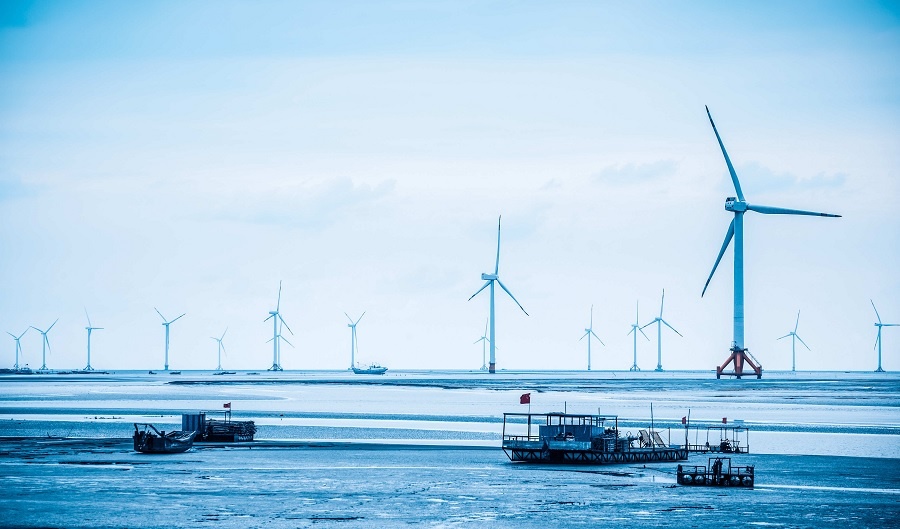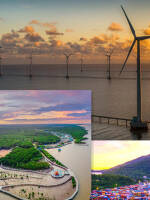
The growing demand for renewable energies, strong economic relations between Vietnam and Germany, as well as the geographical uniqueness that favours offshore wind projects have focused PNE AG’s attention on Vietnam.
With it becoming increasingly important for Vietnam and provinces such as Binh Dinh to become competitive and attract foreign investment through the generation of sustainable energy, PNE AG is interested in a long-term commitment to ecological responsibility in Vietnam.
The Hon Trau offshore wind farm area planned by PNE AG is located off Binh Dinh province. Based on experience in Europe, the construction of up to 2GW of offshore wind energy is planned in three wind farm phases with 40-50 offshore wind turbines each. The company is currently waiting for various approvals in order to move forward.
Through the project, green capacity of around 7.1 million MWh per year for approximately 3.5 million average households in Vietnam will be provided. A wind survey permit for the planned offshore wind farm area has been issued by the People’s Committee of Binh Dinh, and it is mentioned in Vietnam’s Power Development Plan VIII (PDP8).
After obtaining the necessary permits, other relevant investigations, for instance regarding environment and soil, will be started in close coordination with the relevant authorities. Most of the energy generated by offshore wind farms planned by PNE AG will be consumed in the region and thus does not burden the national power grid, which would enable the ideal symbiosis between economic growth and sustainable development.
Markus Lesser, CEO of PNE AG, who recently accompanied a high-level delegation of German President Frank-Walter Steinmeier to Vietnam, explained that there are several reasons for PNE AG’s activities in Binh Dinh.
“The province is aiming for substantial growth in the industrial and tourism sectors. In order to enable such growth, it must also be ensured that the increasing energy demand is met accordingly,” Lesser said.
PNE AG is convinced that with the support of the provincial government and the local value chain, the common economic and ecological goals can be achieved. In view of the current and global developments such as cost increases for components, rising interest rates, and high demand in a booming global market, the offshore wind industry is also facing major challenges.
Therefore, Lesser added, policymakers should create the necessary framework conditions as quickly as possible in order to attract foreign investors and to achieve Vietnam’s ambitious renewable energy targets.
Thorsten Fastenau, head of Offshore Wind at PNE AG, underlined that binding mechanisms for the implementation of the PDP8 combined with an attractive tariff system and processing of granting sea survey licences would create trust and security.
“Additionally, the specific interests, for example for marine transport or defence issues, as well as the requirements of international banks with regards to the detailed development which also includes compliance rules, should be taken into account to ensure the coexistence of the different stakeholder interests and offshore wind development,” Fastenau said.
PNE AG is currently developing projects in 15 countries on four continents in onshore and offshore wind, as well as photovoltaics and new technologies such as power-to-X. In addition, PNE AG’s services include operational management during the lifetime of the projects (currently approximately 2,700MW of generation). Since the company was founded, PNE AG has initiated renewables projects with a nominal output of more than 7,000MW.
PNE AG is one of the most successful developers in Germany in offshore wind, with 2,600MW of developed projects at sea, of which 1,300MW are already in operation.
Thanh Tung




